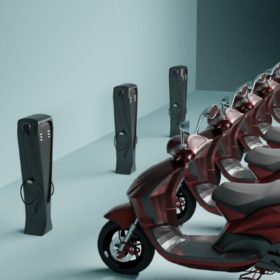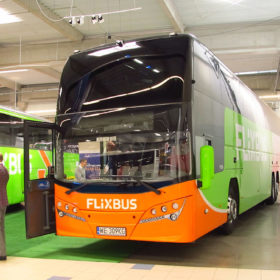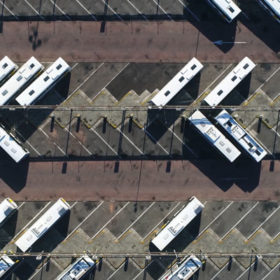Proposals invited to install EV charging stations on major highways and expressways
The second phase of the Faster Adoption and Manufacturing of (Hybrid) and Electric Vehicles (FAME II) program offers incentives to deploy electric vehicle (EV) charging infrastructure.
Magenta Power and ematrixmile partner on EV charging network
Magenta’s tie-up with the app-based electric scooter rental service provider is aimed at setting up EV charging infrastructure in Maharashtra, and later nationwide.
Installers sought for 1,000 EV charging stations nationwide
Contractors will be required to identify sites and develop, operate and maintain interoperable electric chargers in more than 75 cities.
FAME II program backs more than 27,000 EVs
The second phase of the Faster Adoption and Manufacturing of (Hybrid) and Electric Vehicles program offers purchase incentives for electric and hybrid vehicles and also supports charging infrastructure.
India could add 6,490 electric buses in next two years
The country’s electric bus market has gained momentum owing to aggressive government push through FAME India [Faster Adoption and Manufacturing of (Hybrid &) Electric Vehicles in India] scheme and increased interest from global investors.
Flipkart plans complete transition to electric vehicles by 2030
The e-commerce player has worked with design and manufacturing partners to procure electric vehicles (EVs) optimized for e-commerce deliveries. It is also planning to set up the necessary charging infrastructure close to its 1,400 supply chain premises to push the use of EVs.
The long read: PV + e-mobility = economic development
Mobility in rural Kenya is currently flooded with unsustainable CO2-emitting motorcycles that pose a threat to the environment and public health. But the electric tricycle is an environmentally friendly alternative, and Solar E-cycles – a homegrown Kenyan startup – believes a leasing model could unlock a ton of three-wheeled potential.
Hitachi ABB Power Grids launches charging solution for large EV fleets
The containerised solution integrates grid connection and multiple charging systems, allowing public transport and commercial fleet operators to charge more electric vehicles with less infrastructure in depots.
India can become electric vehicle manufacturing hub within five years: Nitin Gadkari
The industry needs to cut a dependence on electric vehicle battery imports from China, according to the road transport minister, who said the government is looking to support research into alternatives to lithium-ion technology.
Tata Power to set up superfast EV chargers at MG Motor outlets
The 50KW DC chargers will be accessible by both MG ZS electric vehicle (EV) customers as well as other EV owners whose automobiles are compatible with the CCS/CHAdeMO charging standards.











